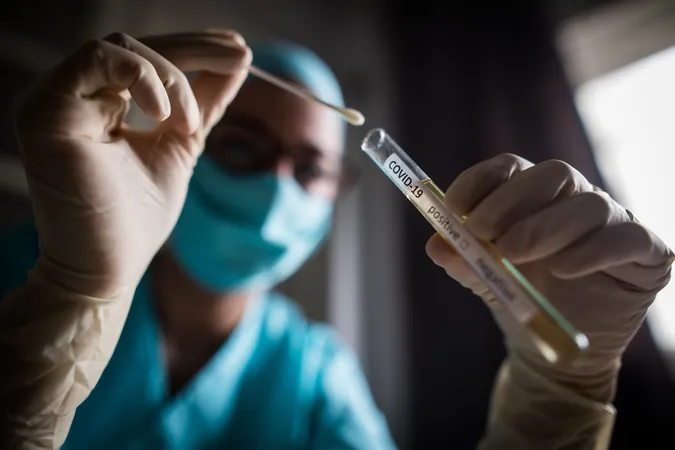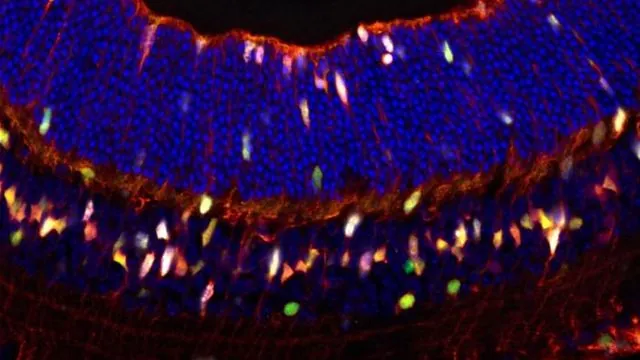
Alarming New Findings: Over Half of Long COVID Sufferers Face Symptoms for Up to Two Years!
2025-03-17
Author: John Tan
Study Overview and Statistics
A recent study published in *BMC Medicine* unveils staggering statistics about long COVID: approximately 23% of those who contracted COVID-19 between 2021 and 2023 have developed lingering symptoms, with more than half experiencing these symptoms for a staggering two years!
Risk Factors for Long COVID
The research highlights several notable risk factors. According to Marianna Karachaliou, a researcher at ISGlobal and coauthor of the study, women, those who had severe COVID-19 infections, and individuals with pre-existing chronic diseases like asthma are significantly more at risk. Furthermore, the study found that obesity and elevated levels of IgG antibodies before vaccination can also increase the likelihood of developing long COVID.
Definition by CDC
The Centers for Disease Control and Prevention (CDC) defines long COVID as a chronic condition that continues for at least three months after SARS-CoV-2 infection, manifesting a variety of symptoms that can fluctuate in intensity.
Key Points from the Study
Among the key points from the study, it was noted that individuals who are women, Hispanic or Latino, above 65 years of age, unvaccinated, and those with severe disease or underlying health issues face heightened risks of long COVID. However, researchers emphasize that despite existing data on risk factors, there is a concerning gap in knowledge regarding the progression of long COVID.
Study Cohort and Symptoms
This comprehensive study involved a population-based cohort from Catalonia, including 2,764 participants who were infected with COVID-19. A significant 23.4% reported experiencing long COVID symptoms. The most prevalent symptoms included neurological issues (63%), muscular disorders (39%), respiratory complications (28%), and psychological effects (21%).
Subgroups of Long COVID Patients
The investigation identified three distinct subgroups of long COVID patients. The first comprised 51% who faced a high prevalence of neurological symptoms along with mild respiratory and sensory issues. The second group, at 20.6%, reported mild respiratory symptoms alongside minimal additional complaints. Finally, 27.8% of participants had severe multiorgan symptoms, indicating a wide range of complications.
Long-Term Symptoms
Alarmingly, 56% of patients reporting long COVID in 2021 continued to suffer from persistent symptoms in 2023, especially those in the severe multiorgan subgroup. Notably, the findings reaffirm that women have a higher probability of developing long COVID compared to men. Additionally, individuals with lower levels of education faced greater risks, while older individuals (above 65) maintained comparatively lower risk levels than younger cohorts.
Chronic Health Conditions and Risk
Chronic health conditions were also significant predictors of long COVID, with anxiety and depression presenting the highest risk, followed by digestive diseases, rheumatism, and chronic respiratory diseases.
Severity of Infections and Vaccination
In terms of severity, patients who experienced mild to moderate infections had a threefold increased risk of developing long COVID, whereas those who had severe or critical infections were nine times more likely to face long-term symptoms. In contrast, vaccination prior to infection and subsequent booster shots showcased a protective effect against long COVID.
Conclusion and Implications
Judith Garcia-Aymerich, another researcher associated with the study, emphasized the implications of these findings, stating that a considerable portion of the population continues to suffer due to long COVID, impacting their quality of life. She also noted the importance of international collaborations to understand if these findings are applicable to other populations globally.
Call for Further Research
As the world continues to grapple with the effects of the COVID-19 pandemic, the urgency for further research into long COVID has never been more pressing. The findings highlight a critical need for healthcare systems to address the long-lasting challenges faced by COVID-19 survivors.





 Brasil (PT)
Brasil (PT)
 Canada (EN)
Canada (EN)
 Chile (ES)
Chile (ES)
 Česko (CS)
Česko (CS)
 대한민국 (KO)
대한민국 (KO)
 España (ES)
España (ES)
 France (FR)
France (FR)
 Hong Kong (EN)
Hong Kong (EN)
 Italia (IT)
Italia (IT)
 日本 (JA)
日本 (JA)
 Magyarország (HU)
Magyarország (HU)
 Norge (NO)
Norge (NO)
 Polska (PL)
Polska (PL)
 Schweiz (DE)
Schweiz (DE)
 Singapore (EN)
Singapore (EN)
 Sverige (SV)
Sverige (SV)
 Suomi (FI)
Suomi (FI)
 Türkiye (TR)
Türkiye (TR)
 الإمارات العربية المتحدة (AR)
الإمارات العربية المتحدة (AR)